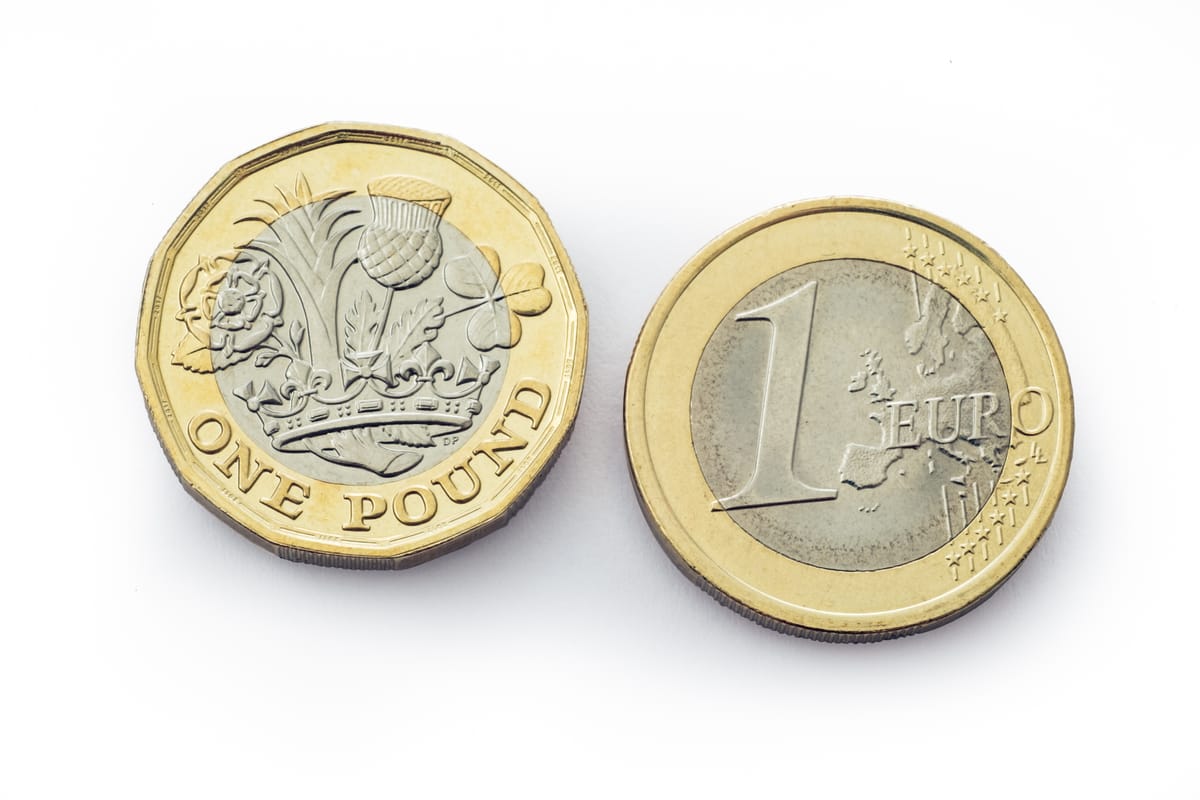GBP/EUR exchange rate week review: pound nears two-year high versus euro amid sticky UK inflation
The pound euro (GBP/EUR) exchange rate was lifted to within touching distance of a two-year high by stubborn UK inflation, which remained unchanged.

(15/07/2024 to 19/07/2024)
Monday
The pound euro (GBP/EUR) exchange rate, which began the week a fraction above 1.19, was muted amid industrial production data from the Eurozone that pointed to weakness in the manufacturing sector after printing at a three-month low.
The euro’s appeal continued to be sullied by political uncertainty in France after the recent election produced a hung parliament.
Tuesday
The pound continued to trade sideways versus the euro as investors anticipated the UK consumer price index for June the following day and its impact on August rate cut bets.
The euro was little moved despite a deteriorating economic outlook in Germany. Investor sentiment in the Eurozone’s largest economy was worse than expected in July, indicating a bumpy economic recovery ahead.
The single currency was handed a lifeline by dollar weakness, due to its negative correlation with the US currency.
Wednesday
The pound neared a two-year high around 1.192 after UK inflation held steady in June, remaining at the Bank of England's (BoE) target rate of 2%. The print was unchanged from May but missed economists’ forecasts for a further drop to 1.9%.
Services sector inflation – closely watched by the BoE – remained stubborn at 5.7%, further dampening August rate cut expectations.
The sticky readings led investors to dial back expectations of an interest rate cut in August from almost 50-50 to 36%.
The euro was muted after data showed Eurozone inflation headed lower in June, coming in at 2.5%, justifying the European Central Bank’s (ECB) decision to cut interest rates last month.
Contact a currency specialist to discover how they can help you take control of exchange rates.
Thursday
The pound euro rate, which traded a whisker below 1.19, was largely subdued following the European Central Bank’s (ECB) decision to keep interest rates unchanged in July having cut from record highs the previous month – a move that was made despite stalling disinflation.
The central bank is proving more cautious about a follow-up step amid persistent inflation, with ECB officials indicating that policy may need to remain restrictive for longer than anticipated – a hawkish view that kept the euro afloat.
The pound was pressured by a downbeat jobs report.
UK wage growth slowed from 5.9% in the three months to April to 5.7% in the three months to May – the lowest level in two years – providing BoE rate-setters with food for thought as they ponder whether to cut interest rates next month. Unemployment remained at 4.4% in April, while job vacancies fell by 30,000.
The UK currency’s downside was tempered by renewed rate cut buts, with the odds of August action rising to 40%.
Friday
The pound dipped to a weekly low against the euro around 1.185 following lacklustre UK retail data.
British retail sales slumped by more than forecast in June amid poor weather, election uncertainty and the cost-of-living crisis. Sales volumes were estimated to have dropped by 1.2%, after a rise of 2.9% in May. Economists had expected a shallower 0.4% decline.
The ECB’s decision to keep interest rates on hold continued to subdue the euro amid a data lull in the Eurozone.
Looking ahead
Purchasing managers index figures from the German, Eurozone and UK economies will be closely monitored by investors on Wednesday.
